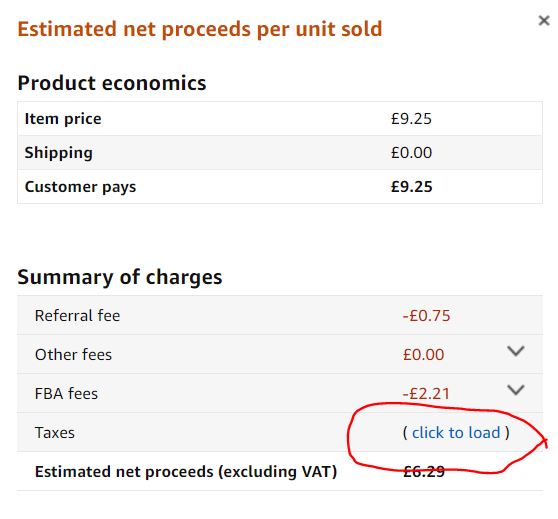
If you're looking for the best prices when it comes to grocery shopping at Target, you've come to the right place. This article will show you how to grocery shop at Target. I'll also tell you about cash back opportunities, discounts on specific items, and free grocery shopping for kids. Don't forget the good stuff!
Target recently acquired Good & Gather.
Target didn't mince words when it announced its new grocery store brand. It wanted to get to know its customers better and understand the issues that they face. Target spent hundreds of time researching customers and the best ways to solve those problems. They sought customer feedback and talked with them, as they knew that the smallest details could reveal the problems of most consumers. This research has helped them to create a product line that complements its other owned brands and is more affordable.
It gives you cash back
Cash back is offered by many credit cards when you shop for groceries. However, some categories may not be eligible. Target and Walmart both belong to the grocery category, but some cards may categorize them as superstores or wholesale clubs. To find out which stores are eligible, check with your credit card company. Another option is to sign up for a cashback program. Some credit cards offer up to 3% cash back when you buy groceries. These deals are not always available so make sure you read your terms and conditions.
It offers discounts on certain items
Target offers a price match for certain items, whether you are looking for fresh produce or household staples. The same-brand grocery items are eligible for price matching, provided they are available at participating stores. You may not be able to price match certain items. To ensure you don't miss out on any discounts, make sure you check the ads or set up smartphone alerts in case you find a cheaper price. To maximize the price match, the item must be purchased within 14 days of its original price.

There are discounts available on select days of week
Target cuts prices up to half off during certain weeks. This is even more true for major holidays. These discounts can get even greater during the week when products are often marked down further. Target has red and yellow price tags that can help you identify sales or price reductions. These prices don't apply for mobile phones with contract or clearance items. Rain checks are also available at these stores. Before submitting your request for a rain check, please read the terms and conditions.
FAQ
Are you convinced that it is important to use coupons in grocery stores?
Coupons can save you money, so it is worth using them. Be aware that not all discounts are available. It is best to match coupon prices with sales prices.
To maximize savings, coupons can also be combined. You could, for example, combine two $2/1 coupons to make one $4/3 coupon.
What are the disadvantages and advantages of online shopping?
Online shopping offers many benefits to both consumers and retailers. The main advantage is convenience, which allows people to shop anytime they want. You don't even have to go to stores to look at the products. There are also some drawbacks. Online shoppers might not be able to know the exact cost of an item until they buy it. This could result in them spending more than they should. One disadvantage is that customers may feel more secure buying from big-box stores, as they are more used to seeing products in person. Online customers may not have the option to return a product if they decide to buy it elsewhere. Online shopping can also put pressure on brick-and-mortar shops, as they may lose customers to online competitors.
Are there any discounts that can be requested when you shop?
Always try to negotiate a lower price when buying products. It's not rude to ask if they have any discount codes available. You can ask politely if they have any discount codes. This could save you money in the end.
Do I really have to register my credit card number online for shopping?
It is not necessary to register your credit card. However, if you wish to receive special offers and discounts, registering your card may be beneficial. It's a good idea that you verify your identity to your bank.
How can I get the most value for my money when buying clothes online?
You can do a few things to make sure you get the best value for money when shopping online for clothes. You should first take advantage of free shipping offers offered by certain retailers. These promotions often include free delivery within Australia.
Before you make a purchase, be sure to check the return policy. Some websites allow you back items within 30 days of receipt, while others offer refunds only if the items are returned within 14 days.
The third step is to read customer reviews about the retailer that you are interested in purchasing from. You'll be able to determine if they are trustworthy and reliable.
Fourth, compare prices between different retailers. There are plenty of comparison websites available where you can view prices from various retailers side-by-side.
Keep in mind, too, that certain brands and types of clothing may have sales or coupon codes. For any additional deals, check the website regularly.
Statistics
- Your Online Purchases 79% of Americans purchased goods and services online in 2018, which is expected to exceed 90% in 2023. (meetfabric.com)
- The vast majority only change a password to protect privacy a few times a year (27 percent) or, more likely, never (35 percent). (pcmag.com)
- A report from the U.S. Census Bureau found that in the first quarter of 2022, an estimated $250 billion was spent on retail e-commerce sales.1 (thebalance.com)
- An approximately 90% increase in price affords Hotel X the opportunity of extreme profits under severe circumstances. (dos.ny.gov)
External Links
How To
How to shop online safely
Online shopping is one the easiest ways to purchase goods and services. However, this convenience comes at a price. Online shopping has many advantages, but there are also risks. Identity theft is the greatest risk. Identity thieves use your personal data (name, address, credit card number) to steal money from you or take out fraudulent loans against your name. They will then sell your stolen information to the black market. If you want to stay safe while doing business online, here are some tips to keep in mind:
-
Use secure websites. SSL encryption is available for free in most online shops to protect customer information. Any information entered on the site, including names and addresses, phone numbers, credit card details, and so forth, is encrypted. It prevents anyone else from reading what you enter. When choosing which online store to do business with, ensure they have a valid certificate issued by a recognized CA. When you browse the web, look for a green padlock icon at the URL bar.
-
Don't give away your password. When you first sign up for a new account, you usually receive an email asking you to confirm your email address and/or username. This information should never be given to anyone. These credentials should not be written down. Someone could steal your wallet and gain access to your accounts. Instead, save them on your personal computer. Also, it is important to change passwords every three months.
-
Keep track on your orders. If you're sending items to yourself or others, make sure you keep track of where you send those packages. Many people fall for the trap of thinking they have sent something to them, but in reality it was sent from another place. Before paying for shipping, make sure you verify the tracking number. Do not ship anything without proof that it was delivered. If you aren’t satisfied with your service, contact the company as soon as possible.
-
Be aware of who you are dealing with. Many websites will ask you to provide sensitive information such as your full name, date of birth, Social Insurance Number, and bank routing number. These details are used to identify you. If you're unsure whether a website needs this information, just Google "what does need?" You will find plenty of information.
-
Pop-up windows can be annoying. Many sites bombard you with pop-ups advertising deals, special offers, and other products. Some ads are legitimate but some are intended to trick users into divulging private information. For example, a fake anti-virus program could ask for your banking information, credit card numbers, and social security number. To avoid being tricked, never click on links that appear suspicious.
-
Beware of Phishing Scams Phishing scams are where hackers pretend to be reputable companies in order to trick customers into giving their financial information. Phishers send emails that look like they're from retailers and banks. These emails encourage users to log-in to update their account information. Once you give your information, hackers have full control over your finances. Hackers are able to drain your bank accounts and transfer funds among different accounts. Many resources are available on spotting a phishing scam, including How to Spot a Fake Email Scam.
-
Do your homework. Be sure to read the fine print before you sign anything. The terms and condition of any contract you sign must be easy to comprehend. You should carefully read through the contract and make sure you understand what you are agreeing to. Saving money is as simple as avoiding hidden fees and charges.
-
Take the time to shop around. Do not be afraid to shop around. Compare prices from different websites until you find a good deal. Also, compare shipping costs when ordering multiple items. Shipping costs can vary greatly depending upon which website you use. For fast shipping, it's worth paying an extra.